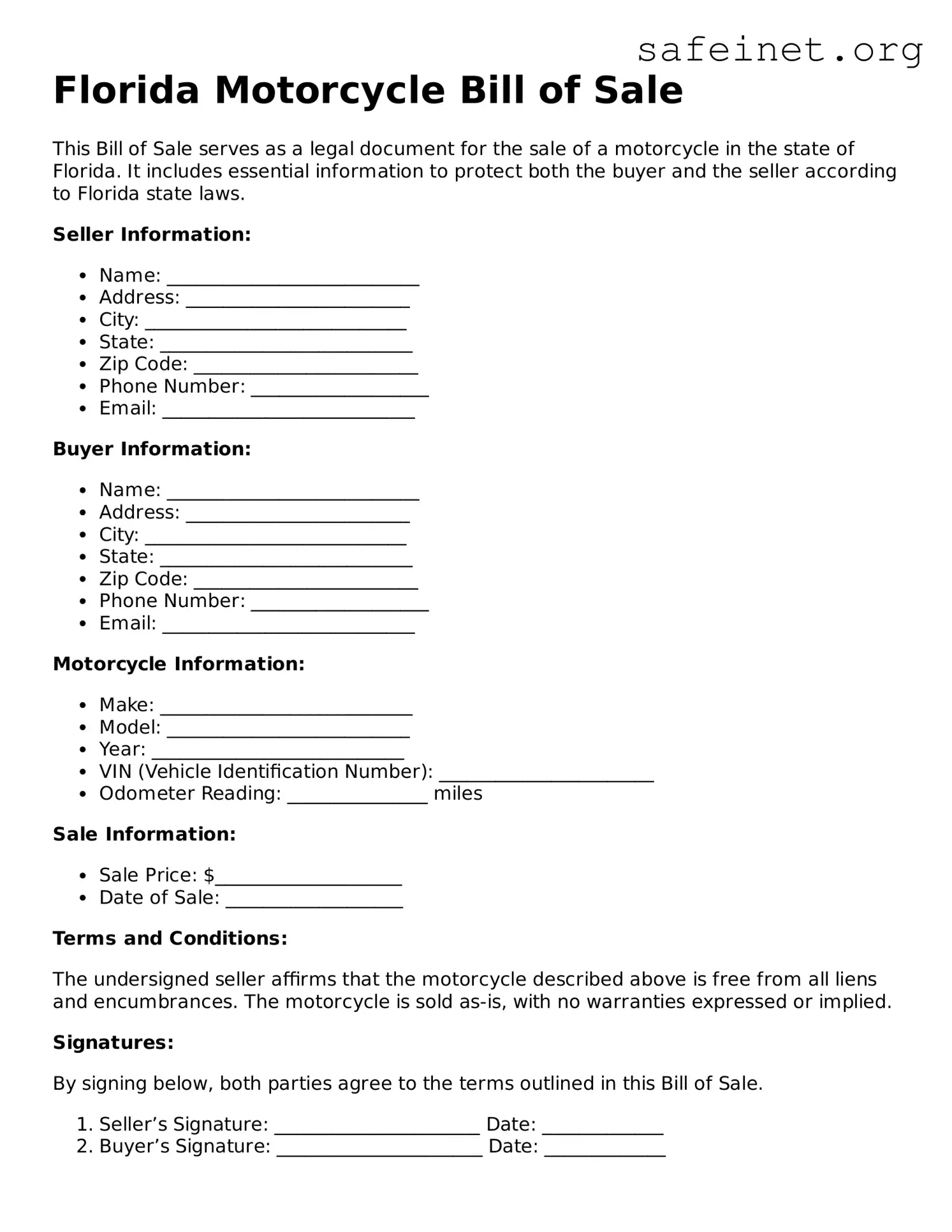What is a Florida Motorcycle Bill of Sale?
A Florida Motorcycle Bill of Sale is a legal document used to record the sale of a motorcycle in the state of Florida. It serves as proof of the transaction between the seller and the buyer, detailing important information about the motorcycle, the buyer, and the seller. This document can be crucial for both parties, as it protects their interests in the event of disputes or for tax purposes.
What information is needed to complete the Bill of Sale?
To complete a Florida Motorcycle Bill of Sale, you will need several key pieces of information. This includes the motorcycle's make, model, year, Vehicle Identification Number (VIN), and odometer reading. Additionally, include the names and addresses of both the buyer and seller, as well as the sale price and the date of the transaction. Ensure that all information is accurate to prevent future issues.
Is a Bill of Sale required in Florida?
While a Bill of Sale is not legally required in Florida, it is highly recommended. Having a Bill of Sale provides a clear record of the transaction and can help establish ownership. It can also be useful when registering the motorcycle with the Florida Department of Highway Safety and Motor Vehicles (DHSMV). In some cases, dealerships or lenders may require it as part of their documentation process.
How do I get the Bill of Sale notarized?
If you want your Florida Motorcycle Bill of Sale to be notarized, both the buyer and seller should be present at the notarization. Choose a licensed notary public, who will verify the identities of both parties and witness the signing of the document. Once notarized, the Bill of Sale becomes a stronger legal document and can provide additional protection for both parties involved in the transaction.
Can I use a generic Bill of Sale template for my motorcycle?
Yes, you can use a generic Bill of Sale template for your motorcycle, but it's important to ensure that it meets Florida's specific requirements. The template should include all necessary information pertinent to the motorcycle sale, including details about the vehicle and both parties. Customizing the template to reflect the specifics of your transaction will improve clarity and ensure that it serves its purpose.
What should I do after completing the Bill of Sale?
After completing the Bill of Sale, both the buyer and the seller should keep a copy for their records. The buyer then needs to take the Bill of Sale to the local tax collector's office or the DHSMV to register the motorcycle in their name. This step is essential for obtaining proper registration and title to the vehicle. It's also advisable to cancel any existing insurance policy on the motorcycle while the new owner secures their own coverage.
